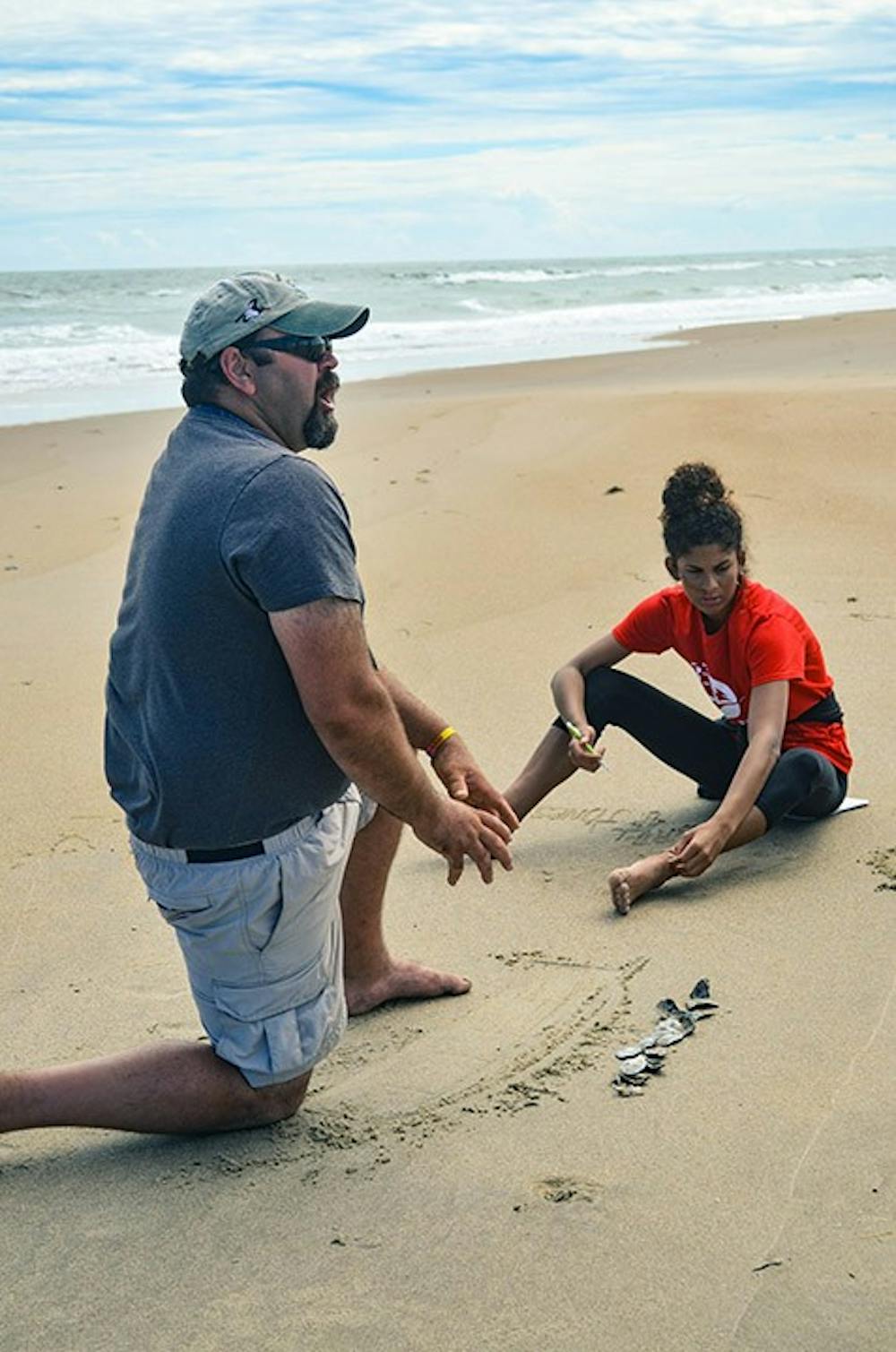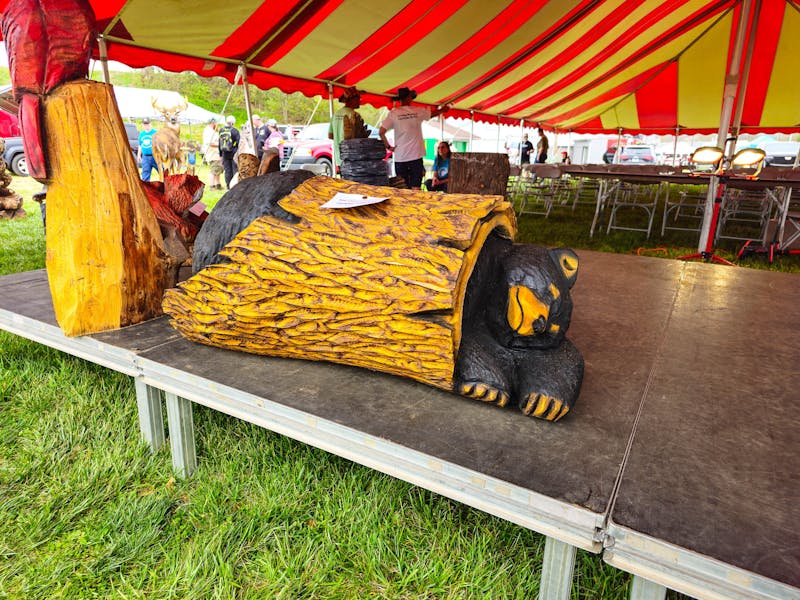Every summer students from eight of the 14 Pennsylvania State System of Higher Education (PASSHE) schools travel to the eastern shore of Virginia to take intensive summer courses at the Chincoteague Bay Field Station.
The courses offered at the field station are mostly marine science-based, last for three weeks and allow students to get hands-on experience in the field. Examples of courses offered this summer included invertebrate zoology, biological oceanography and coastal ornithology.
Shippensburg University senior biology major Alena Smith took the marine mammals course in July at the field station. Smith first learned about the field station from a poster in Franklin Science Center and thought it looked interesting. Her adviser encouraged her to take a course at the field station, but other summer courses kept getting in the way.
“Finally this year [my adviser] was like, ‘Go to the field station!’” Smith said.
For half of the day, Smith’s class would go dolphin watching to study the mammals’ behavior, and during the second half of the day, her class attended lectures to learn about what they observed.
Smith found the field work most beneficial at the field station because biology courses at SU lack the opportunity to work in the field.
“Here we’re doing field projects and setting up experiments which doesn’t happen back at Ship,” Smith said.
Sean Cornell, professor of geography and earth science, taught coastal hazards and sustainability at the field station this summer.
“What other place can you go to that is as hands on and field centered as the Chincoteague Bay Field Station?” Cornell said. “I know it’s here where students come alive.”
Cornell said the field station is a way to share the knowledge of scientists to people of any age, but it also informs the community about how they can make a difference in the environment. This includes through projects such as the living shoreline projects, marsh restoration, invasive species activities and beach cleanups.
“I think our students have to see how much fun hands-on learning can be,” he said.
Sarah Bartle first heard of the field station while she was an undergraduate student at SU and her oceanography course took a field trip there.
Bartle was and continues to be involved with research projects at the field station. She also holds the position of the university and research coordinator at the field station.
“The field station was one of my top choices when applying for jobs because of the experience you get in a wide variety of field settings,” Bartle said. “I felt that this type of job would give me the necessary experience for a future career in field sciences. I was also very interested in assisting students and professors in their research endeavors and facilitating projects.”
Some aspects of Bartle’s job includes facilitating research of field station students and education staff, using research equipment aboard marsh and offshore vessels and teaching students to collect and handle marine organisms.
Other than just taking classes, students have the opportunity to conduct research projects under the direction of a faculty member from their university at the field station, according to Bartle.
Students can also apply for internships and seasonal positions in any of the different programs, including university and research, school and summer camp, adult and family and marketing and outreach. Interested students can look for job postings in the fall through the spring at cbfieldstation.org.



The Slate welcomes thoughtful discussion on all of our stories, but please keep comments civil and on-topic. Read our full guidelines here.